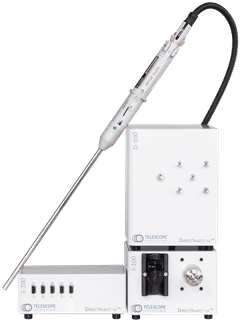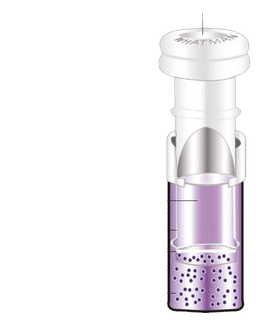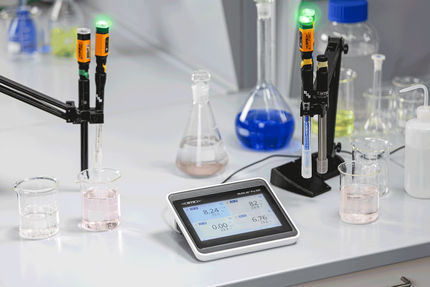To use all functions of this page, please activate cookies in your browser.
my.chemeurope.com
With an accout for my.chemeurope.com you can always see everything at a glance – and you can configure your own website and individual newsletter.
- My watch list
- My saved searches
- My saved topics
- My newsletter
Fetuin
Fetuins are blood proteins, which are made in the liver and secreted into the blood stream. They belong to a large group of binding proteins mediating the transport and availability of a wide variety of cargo substances in the blood stream. The best known representative of these carrier proteins is serum albumin, the most abundant protein in the blood plasma of adult animals. Fetuin is more abundant in fetal blood, hence the name fetuin (from lat. fetus). Fetal calf serum contains more fetuin than albumin, while adult serum contains more albumin than fetuin. Product highlightHuman fetuin is synonymous with α2-HS-Glycoprotein (genetic symbol AHSG), α2-HS, A2HS, AHS, HSGA and fetuin-A. Fetuin-A exists as a single copy gene in the human and mouse genomes. A closely related gene, fetuin-B also exists in the human, rat and mouse genomes. Like fetuin-A fetuin-B is made predominantly by the liver and to a lesser extent by a number of secretory tissues. Fetuins exist it in all vertebrate genomes including fish and reptiles. Fetuins are members of a family of proteins, which evolved from the protein cystatin by gene duplication and exchange of gene segments. Thus fetuins belong to the cystatin superfamily of proteins. Fetuin relatives within this superfamiliy are the histidine-rich glycoprotein (HRG) and kininogen (KNG). The function of Fetuin-A in the body was determined by gene knockout technology in mice. Knocking out the gene for fetuin-A rendered the mice completely fetuin-A deficient. Feeding a mineral-rich diet to fetuin-A deficient mice resulted in widespread calcification, »ectopic mineralization« of lung, heart and kidneys in these mice. The calcification became drastically exacerbated, when the fetuin-A knockout was combined with the genetic background DBA/2. The mouse strain DBA/2 is known for its proneness to calcify damaged tissues – a process called dystrophic calcification. Fetuin-A deficiency dramatically increased the calcification proneness of these mice in that all mice sponteneously calcified throughout their body even without mineral-rich diet or surgical tissue trauma. Therefore Fetuin A is regarded as a potent inhibitor of systemic calcification. |
||
| This article is licensed under the GNU Free Documentation License. It uses material from the Wikipedia article "Fetuin". A list of authors is available in Wikipedia. |







